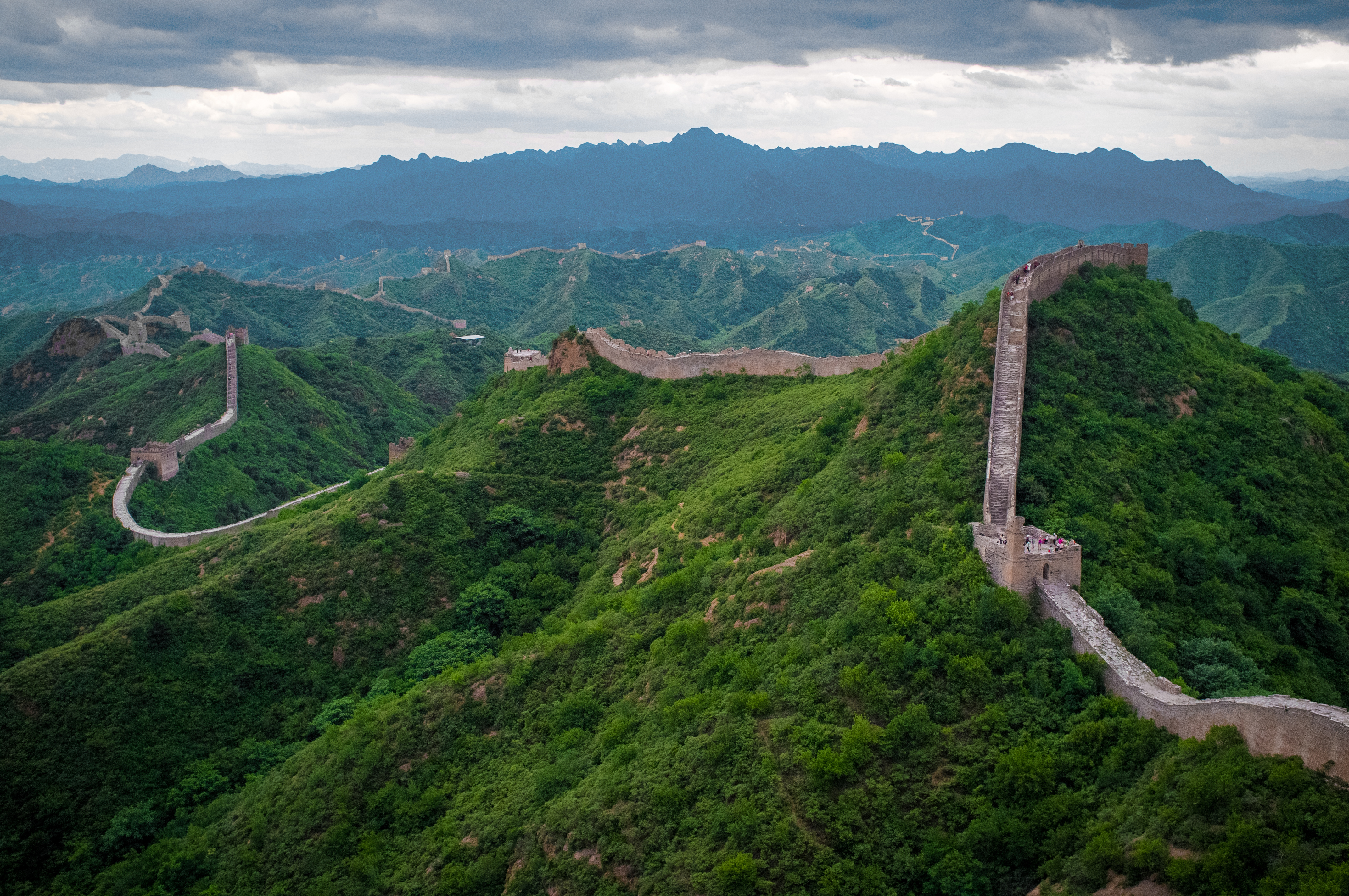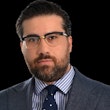The war against Islamic State (ISIS), or Daesh, in Syria and Iraq has produced few signs of hope over the last five years. The human toll has been horrific. The economy has been devastated. And we’ve seen, also, the desecration of the cultural heritage of ancient civilizations. Many international humanitarian workers have put their lives on the line, some fatally so, to assist the Syrian and Iraqi peoples in their hour of desperate need. These efforts largely go unnoticed in the international media, but they occur each day. These are truly the silent heroes of this appalling war.
We are reminded of the fate of Khaled al-Asaad, a renowned Syrian scholar and the head archeologist responsible for antiquities in Palmyra. Al-Asaad was captured by ISIS and interrogated for a month to try to extract from him the location of antiquities, which he had helped to hide from the black-clad militants. Yet he preferred to lay down his life for our shared, global culture than to allow its plunder. He was then brutally murdered.
We are also reminded of the extraordinary story of Alexander Prokhorenko, a Russian special forces operative deployed in Palmyra. We’re all familiar with the controversies surrounding Russian participation in this conflict. But Prokhorenko’s story is worth recounting as we try to understand the depths of the struggle surrounding Palmyra, the home of ancient Greco-Roman and Semitic antiquities. Prokhorenko was conducting operations in the approaches to Palmyra on March 19 when he found himself surrounded by ISIS forces. With little hope of escape, he called in an airstrike from Russian fighter pilots on his own position. Prokhorenko died in the airstrike, in another reminder of the many extraordinary acts of self-sacrifice which have emerged from this unspeakable conflict. Many other armed personnel from various countries have also laid their lives on the line to roll back the ISIS offensive and, ultimately, destroy their operation. We should be mindful of all their sacrifices.
The large-scale, pre-mediated, and highly publicized destruction by violent jihadists of ancient sites across Syria, Iraq, Libya, and Mali in recent years, and before that in Afghanistan, are only the most visible symptoms of a more virulent assault on the cultural and civilizational legacy of us all. The retaking of Palmyra earlier this year revealed the scale of Islamic State’s systematic cultural onslaught of our common human heritage. The temples of Baal and Baalshamin were among the extremist group’s targets.
According to a March 2016 letter from Russia’s permanent representative to the UN Security Council, around 100,000 cultural objects of global importance are under ISIS control. The Russian ambassador further stressed that illicit looting and trade in antiquities added up to $150-200 million per year in revenues for the jihadists’ war chest. Indeed, the illicit trade in antiquities is the third-largest source of revenue bank-rolling ISIS’s brutal reign over large swaths of Syria and Iraq. However, that fraction is set to increase. As Yale political scientist Jason Lyall has warned, the Western strategy of economic strangulation of its illicit oil and gas trade, and military pressure on the ground, will increase militants’ incentive to loot and destroy cultural heritage, partly as a show of territorial control, and partly out of cold financial calculus. As looting becomes one of ISIS’ main cash sources and other revenue sources dry up, we should expect more indiscriminate looting in the period ahead. This heightens the need and the urgency for stronger forms of international cultural protection.
So rampant has this become that international legal analysts now speak of “cultural terrorism.” Already one individual, Ahmad al-Faqi al-Mahdi, has appeared at the International Criminal Court (ICC) for allegedly destroying cultural sites in Mali. “Intentionally directing attacks against buildings dedicated to religion, art, science or charitable purposes” and “historic monuments” are war crimes under the Rome Statute.
Legal experts will forensically investigate this case for the possible precedents it will set, although his case may prove to be the first guilty plea at the Court. While acts of violence against cultural property in Mali are subject to prosecution, international efforts to protect cultural heritage in Syria and Iraq will be sorely tested as ISIS is slowly rolled back and ultimately defeated.

Great Wall of China
The shared responsibility of states in protecting cultural heritage from the destruction of war is reflected in the 1899 and 1907 Hague conventions. These international agreements enshrined principles which, though violated repeatedly during the Second World War, informed our post-war international legal framework for the protection of global cultural heritage from looting and destruction in wartime.
The Convention for the Protection of Cultural Property in the Event of Armed Conflict (1954) adopted after World War II was the most far-reaching international agreement on this important agenda. Critically, the 1954 convention established the principle, which stands as a glimmer of light in today’s fraying global order, that “damage to cultural property belonging to any people whatsoever means damage to the cultural heritage of all mankind.” This convention was complemented by a second protocol in 1999, and UNESCO’s Declaration concerning the Intentional Destruction of Cultural Heritage in 2003.
UNESCO has played a major role in promoting the protection of antiquities in recent years. This specialized body of the United Nations was first conceived in 1942, during the darkest days of the Second World War, when victory was far from assured. In 1945, thirty-seven governments, including Australia, founded UNESCO to promote the “intellectual and moral solidarity of mankind” and, thereby, prevent future wars.
UNESCO’s Director-General, Irina Bokova (who has also contributed an article to this Arguendo roundtable), has received strong international support for her efforts to enhance current levels of international legal protection of cultural heritage. Bokova has rightly called the destruction of cultural heritage “a war crime that should be punished as such” and a “genocidal project;” called the protection of cultural heritage as a “humanitarian imperative;” “a battle of ideas;” and “a new global struggle for hearts and minds, especially young hearts and minds.” As Bokova stated:
“We must boost more coordination between member [U.N.] states, among law enforcement agencies, museums, auction houses, and the private market. I think all this is so important to deepen the information sharing and research, and, at the end of the day, to pass a very strong message: It is immoral; it is unethical, it is simply not right, to trade looted objects.”
These remarks offer compelling additions to the global policy debate on how to protect global cultural heritage in the shadow of war. The United States, Russia, and Iran, have thrown their support behind international efforts to track, protect, and restore looted or damaged antiquities in Iraq and Syria. This is an encouraging sign of continued great power cooperation in the protection of global public goods.
The non-profit sector has also stepped up to help. The Asia Society hosted a special high-level forum in New York City in September 2015, entitled “Culture Under Threat”, bringing together UNESCO’s Bokova, the foreign ministers of Iraq and various countries including Australia, Asia Society President Josette Sheeran, and Antiquities Coalition Chairman Deborah Lehr. Senior government officials from around the world attended this important meeting, held on the margins of the United Nations General Assembly in September 2015. It built on the May 2015 Cairo Declaration, which recommended a regional strategy to combat the trafficking of looted antiquities and its links to terrorist financing.
The Asia Society, in partnership with the Antiquities Coalition and the Middle East Institute — which together form the #CultureUnderThreat Task Force—set out concrete recommendations calling on the UN:
“to urge the International Criminal Court to open an investigation of cultural crimes in Iraq and Syria; to include the safeguarding of cultural resources in peacekeeping training and mandates; to incorporate heritage protection in post-conflict planning; and to support the capacity of national courts to conduct domestic prosecutions of cultural racketeering and cleansing.”
These imperatives have been taken up by the Security Council. The Chair of the UN Security Council Committee pursuant to resolutions 1267 (1999) and 1989 (2011) produced a set of recommendations to the Council, in 2015, chief among which was the suggestion of mandating “a worldwide moratorium on the trading of antiquities from the Syrian Arab Republic or Iraq” which lack clear, certified provenance. This recommendation informed operative clause 17 of Resolution 2199 (2015), which decided that all member-states take appropriate steps “including by prohibiting cross-border trade” of uncertified antiquities from Iraq and Syria. This too was a positive step forward in strengthening an international cultural protection regime that has struggled to keep pace with the new forms of modern warfare by non-state actors.
As the UN Secretary-General has stressed, the destruction of our shared cultural heritage is a deliberate effort to untie the bonds of culture, history, and literature which unite our diverse tribes into a global family. By destroying culture, he argued, extremists attempt to “divide people…erase their common values, shred the social fabric, and create greater fragility and vulnerability to build a cynical ideology.”
Cultural terrorism, either in the wholesale destruction of our physical civilizational memory, or through the looting of cultural artifacts for selling on the black market to secure terrorist finance, represents a cold, rational, calculated strategy, and an increasingly important part of the arsenal of global terrorism.
The international community must continue to analyze and respond to the rapidly evolving role which cultural terrorism plays in ISIS finance, propaganda, and military strategy. And we must operationalize these insights into the strategic thinking, doctrinal training, and field manuals of UN agencies, peacekeeping operations, and the armed forces of the international coalition fighting ISIS. In all of the above, the United Nations and its institutions have central roles to play as the international custodian of the collective hopes of us all.





